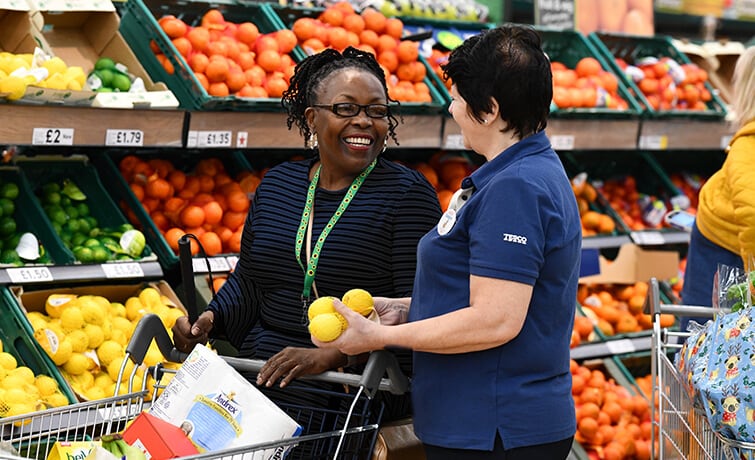How should employees in hospitality and retail respond to customers wearing sunflower lanyards during Covid-19?
During the Covid-19 pandemic, retail and hospitality workers may have seen a rise in the number of people wearing sunflower lanyards in shops, restaurants, and other public spaces. It’s important for all individuals, but especially those who work in retail and hospitality, to recognise and understand what sunflower lanyards are and how to respond to them appropriately.
What is the sunflower lanyard all about?
Sunflower lanyards are simply an easy way to let people with hidden disabilities discreetly signpost to staff or members of the public that they may need a little extra time or additional help while out and about in public settings.
The Sunflower Lanyard Scheme was first launched back in 2016 as a way to provide discreet support to people with hidden disabilities in Gatwick Airport, with other airports across the UK soon following suit and employing the lanyard scheme over the coming two years. Since then the scheme has been recognised by many major UK businesses and institutions including rail providers, supermarkets, NHS hospitals and surgeries, and leisure attractions.
Who is the sunflower lanyard for?
There is no single list of disabilities which qualify people to wear sunflower lanyards; instead, anyone who feels that they may need extra assistance or help can wear one to signal this. The scheme is supported by the RNIB, the National Autistic Society, Action on Hearing Loss, and the Alzheimer’s Society, giving some indications of just some of the kinds of hidden disabilities that may prompt people to choose to wear a sunflower lanyard.
Why is the sunflower lanyard so important during Covid-19?
The pandemic has changed the way we do things in public spaces, and created a set of rules and restrictions which some people with hidden disabilities may find harder to follow than others. This is why sunflower lanyards have grown in popularity over the course of 2020, and why you’re more likely to see sunflower lanyards worn in a public space now than six months ago.
These difficulties can take many forms, and, again, there is no exhaustive list of the difficulties people might face due to the pandemic. However, some things to watch out for might include:
- Some people with hidden disabilities might find it hard to stand or queue for long periods of time.
- It can be hard to wear a mask for long periods for some people with breathing difficulties or sensory difficulties.
- Changes to the way we shop, such as one-way aisles and social distancing, might confuse some people with hidden disabilities such as Alzheimer’s.
The most important thing to remember when it comes to sunflower lanyards is that there is no checklist of disabilities or issues that they’re designed to help with; if someone is wearing a sunflower lanyard, it simply means they might need a little extra consideration.
How should I respond if I see someone wearing a sunflower lanyard?
If you are a retail or hospitality worker and you see someone wearing a sunflower lanyard, just remember that sunflower lanyards are all about discreet support. ‘Discreet’ means that this person may not want their hidden disability broadcast publicly, but they may still need support and help while out and about. The best thing you can do is acknowledge their sunflower lanyard and ask if there’s any extra help or support they might need today. If they don’t need any help at the moment, just let them know you’re around and be mindful that they may just need a little extra time to get around, or might not always follow social distancing guidelines to a T.

Whatever you do, don’t go over and ask people about their hidden disabilities: people wearing sunflower lanyards don’t owe any explanations as to why they need a little extra help, and asking personal questions about a person’s disability could cause offence. And finally, if someone says they do or don’t need help – just take their word for it. Never assume that you know what’s best for them, or try and help someone who doesn’t want or need your help. Simply making your presence known and offering your support is enough.
Where can I get a sunflower lanyard?
If you’ve got a hidden disability and you think you could benefit from wearing a sunflower lanyard, they’re easy to get hold of. They can be purchased online from the Hidden Disabilities website, or picked up from the customer service desks at most major UK supermarkets including Sainsbury’s, Tesco, Marks and Spencer, and Morrisons.

